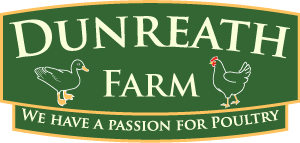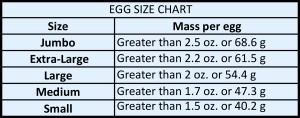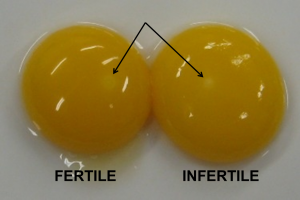-
Eggs
 Steve
Steve 09-09-2015
09-09-2015No. Your hens will lay eggs without a rooster. In fact, most eggs produced commercially come from farms where there are no roosters. Hens are like women. They produce eggs on a regular basis without the assistance of a male. The male is only needed if you want to have your eggs fertilized. Other than that the male is not needed, same goes for chickens. Just ask my wife.
Was this helpful? 22
22 0
0
Hits: 2222 Steve
Steve 09-09-2015Was this helpful?
09-09-2015Was this helpful? 13
13 1
1
Hits: 2443 Steve
Steve 09-09-2015
09-09-2015The red or brown specks that you sometimes find in farm eggs are called "blood spots" or "meat spots". These tiny spots are not harmful and are caused by the rupture of a blood vessel during formation of the egg. While some people my find them unappetizing, they will not affect the taste of the egg.
Commercial eggs found in the grocery store are candled to check for defects in the eggs. Typically, eggs with spots are not found in the supermarket; however, they are used in other commercial foods.
Contrary to popular belief, a blood spot in an egg does not mean that it has been fertilized.
Was this helpful? 16
16 0
0
Hits: 2602 Steve
Steve 15-12-2015
15-12-2015There is an air pocket in the blunt end of the egg. If you store the egg blunt end down, that air pocket has a tendency to rise — not completely through the egg, but enough to reach the yolk. By storing eggs blunt end up, the pocket of air stays away from the yolk, and the egg stays fresh longer.
Was this helpful? 39
39 0
0
Hits: 2509
-
Guineas
 Steve
Steve 12-04-2024
12-04-2024Guinea fowl have become very popular because they will quickly, safely rid an area of disease carrying ticks, as well as other insect pests and small rodents. Guineas make great pest exterminators for gardens too.
Guinea fowl are the clowns of the poultry world with their white painted faces, red wattles and a horn that sits on top of their heads called a helmet. Their high speed and erratic movements are often very comical and their antics are fun to watch. Besides having a voracious appetite for bugs, guineas also dine on grasses, weeds and their seeds. They are carnivores and love to eat small rodents and reptiles.
Guinea fowl also make a superb alarm system. They will make quite the noisy raucous whenever any change occurs in their environment. They hate snakes and they will warn off and sometimes even kill any snakes they come across.
Was this helpful? 0
0 0
0
Hits: 15 Steve
Steve 12-04-2024
12-04-2024The original color of helmeted Guinea fowl is called Pearl. Each feather has a dark gray background and white spots called “pearls”. This color evolved to camouflage the birds for better survival. Selective breeding has increased color choices to a mind boggling number. Most of the other colors guineas are available in make them an easier target for predators.
Guineas come in two sizes. The originally domesticated variety of Guinea fowl weighs up to about 3½ pounds and we call these Standard guineas. These lighter weight guineas tend to fly and range a lot farther than our jumbo guineas. They also tend to be more nervous.
Jumbo Guinea fowl are a genetically improved strain that weighs from 5 -7 pounds. We raise the Jumbo because they have the potential to consume more bugs, are calmer and are content staying on a smaller sized property.
Was this helpful? 0
0 0
0
Hits: 15 Steve
Steve 12-04-2024
12-04-2024The proper name to refer to them is guinea fowl not guinea hens.
A male guinea is called a cock.
A female is called a hen.
Young guineas are called keets.
Was this helpful? 0
0 0
0
Hits: 8 Steve
Steve 12-04-2024
12-04-2024Guinea fowl, are capable of short flights. When startled they burst into the air like a pheasant.
Was this helpful? 0
0 0
0
Hits: 14 Steve
Steve 12-04-2024
12-04-2024During the day they eat, breed, nest and lay their eggs on the ground. Like chickens, Guinea fowl like to roost on some kind of perch during the night. People who raise them usually provide some kind of coop with roomy perches. This keeps the birds dry, warmer and safe from nocturnal predators such as owls, raccoons, skunks, foxes and possums.
Was this helpful? 0
0 0
0
Hits: 13 Steve
Steve 12-04-2024
12-04-2024Guinea fowl are flocking birds so they need the company of others of their species. Three or four Guinea fowl is a minimally acceptable size flock size to make the birds comfortable and content. All members of the flock will establish a pecking order.
Was this helpful? 0
0 0
0
Hits: 13 Steve
Steve 12-04-2024
12-04-2024For people who have never kept guinea fowl it’s best to start with keets. You’ll want to train your Guinea fowl to come to their coop each night and this is most easily done starting when they are keets.
Was this helpful? 1
1 0
0
Hits: 15 Steve
Steve 13-04-2024
13-04-2024For their first week of life, guinea keets should be kept around 95 degrees, each week after the temperature can be reduced by 5 degrees.
Was this helpful? 1
1 0
0
Hits: 12 Steve
Steve 13-04-2024
13-04-2024Guineas need the high protein of our non-GMO Starter feed until they are fully grown, at which point they can be given our non-GMO Layer feed.
Was this helpful? 0
0 0
0
Hits: 13 Steve
Steve 14-04-2024
14-04-2024With chicks or ducklings, sex is determined by vent sexing. This is not possible with keets. The only way to tell the sex, with any degree of certainty, in the early stages of a keet’s life is through genetic testing. This is not usually done because of the expense. This is why we only sell keets in a straight run.
If you can wait out the suspense for 8 or 9 weeks, keets begin vocalizing in sounds unique to their sex. The adult guinea male is called a cock. He makes a one-syllable sound when alerted by anything unusual. He makes a ONE-syllable sound only: “CHI-CHi-Chi-chi…”. The adult female is called the guinea hen. She makes a two-syllable sound: “buck-wheat, buck-wheat”. She can imitate the sound of the cock but the cock cannot imitate the hen.
As adults, the cocks may also be recognized by having larger wattles than the female, and a somewhat larger helmet. Although physical characteristics may suggest the sex of an adult guinea fowl, sound is the sure way to determine the sex.
Was this helpful? 0
0 0
0
Hits: 10 Steve
Steve 14-04-2024
14-04-2024Guineas are creatures of habit and require more training and time then chickens. When guineas first move out to a coop, it should be their "forever coop" as they don't accept change well. Having them bond to their first coop will be very helpful.
When they are fully grown, they can start to be released from the coop for free ranging. This should be done in stages. A staggered release will get the guineas to return home. Start by only releasing a few at a time. Once the guineas have had this routine for a few days, a few more can join them outside. Do this until all of the guineas are roaming during the day.
Was this helpful? 1
1 0
0
Hits: 9 Steve
Steve 18-04-2024
18-04-2024A good rule of thumb is at least 2 guineas per acre for effective foraging. The most you should have per acre is 10.
Was this helpful? 0
0 0
0
Hits: 3 Steve
Steve 14-04-2024
14-04-2024Coop readiness is dependent on the weather and how feathered the birds are. This can be as early as 3 weeks. Nights should be above 60 degrees or higher and daytime temperatures above 70 degrees.
Was this helpful? 0
0 0
0
Hits: 10 Steve
Steve 18-04-2024
18-04-2024Guineas should be full size before they are let out of their coop to free range and forage. This is to help keep them safe from predators.
Was this helpful? 0
0 0
0
Hits: 3
-
Farm Policies
 Steve
Steve 01-07-2016
01-07-2016We only sell healthy animals and cannot control their environment once they leave.
Therefore, all animal sales are final and due to bio-security concerns we cannot take animals back.
Was this helpful? 0
0 0
0
Hits: 3





